The genetic fallacy is a fallacy of irrelevance in which arguments or information are dismissed or validated based solely on their source of origin rather than their content. In other words, a claim is ignored or given credibility based on its source rather than the claim itself.

Ted Honderich is a Canadian-born British professor of philosophy, who was Grote Professor Emeritus of the Philosophy of Mind and Logic, University College London.
Paul Gordon Horwich is a British analytic philosopher at New York University, noted for his contributions to philosophy of science, philosophy of physics, the philosophy of language and the interpretation of Wittgenstein's later philosophy.
Robert Alastair Hannay is professor emeritus at the University of Oslo. Educated in Edinburgh and London, where he studied under A. J. Ayer and Bernard Williams and since 1961 resident in Norway. Hannay has written extensively on the writings of Søren Kierkegaard. His book "The Public" (2004) as well as examining the roles of the 'public' as audience and political participant, brings several Kierkegaardian insights to bear on contemporary political life. Hannay has written a novella (2020) and several pocket books on philosophical themes, as well as a memoir (2020). From 2006 to 2020 he was a member of the team translating Kierkegaard's complete journals and notebooks.
Christopher Janaway is a philosopher and author. He earned degrees from the University of Oxford. Before moving to Southampton in 2005, Janaway taught at the University of Sydney and Birkbeck, University of London. His recent research has been on Arthur Schopenhauer, Friedrich Nietzsche and aesthetics. His 2007 book Beyond Selflessness: Reading Nietzsche's Genealogy focuses on a critical examination of Nietzsche's On the Genealogy of Morals. Janaway currently lectures at the University of Southampton, which in the past has included a module focusing on Nietzsche's Genealogy. That module is now convened by Janaway's colleague, Aaron Ridley.
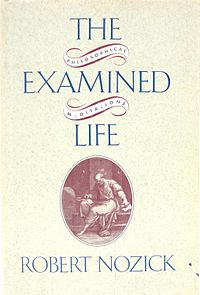
The Examined Life is a 1989 collection of philosophical meditations by the philosopher Robert Nozick. The book drew a number of critical reactions. The work is drawn partially as a response to Socrates assertion in Plato's "The Apology of Socrates" that the unexamined life is one not worth living
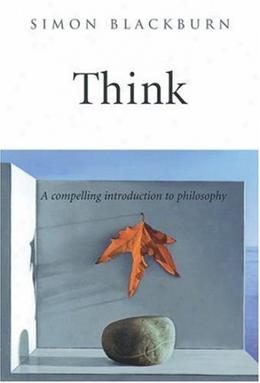
Think: A Compelling Introduction to Philosophy is a 1999 book by the philosopher Simon Blackburn. It is intended to serve as an introduction to philosophy.
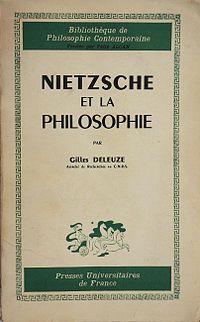
Nietzsche and Philosophy is a 1962 book about Friedrich Nietzsche by the philosopher Gilles Deleuze, in which the author treats Nietzsche as a systematically coherent philosopher, discussing concepts such as the will to power and the eternal return. Nietzsche and Philosophy is a celebrated and influential work. Its publication has been seen as a significant turning-point in French philosophy, which had previously given little consideration to Nietzsche as a serious philosopher.

Patriarcha, or The Natural Power of Kings is a book by the English philosopher Robert Filmer. It was likely begun in the 1620s and completed before the outbreak of the English Civil War in 1642 but it was only published in 1680 after the Restoration. The book defends the divine right of kings on the basis that all modern states' authority derived from the Biblical patriarchs, history and logic. Concurrently, he criticized rival theories claiming the basis of a state should be the consent of the governed or social contract.

Just and Unjust Wars: A Moral Argument with Historical Illustrations is a 1977 book by the philosopher Michael Walzer. Published by Basic Books, it is still in print, now as part of the Basic Books Classics Series. A second edition was published in 1992, a third edition in 2000, a fourth edition in 2006, and a fifth edition in 2015. The book resulted from Walzer's reflections on the Vietnam War.

Phaedon, published in 1767, is a book by the Jewish Enlightenment philosopher Moses Mendelssohn, in which Mendelssohn offers a defense of immortality.

Liberalism and the Limits of Justice is a book about liberalism by the philosopher Michael Sandel. The work helped start the liberalism-communitarianism debate that dominated Anglo-American political philosophy in the 1980s.
Erkenntnis und wissenschaftliches Verhalten is a 1936 book by the Norwegian philosopher Arne Næss. The work was influential and anticipated many themes familiar in subsequent analytic philosophy.
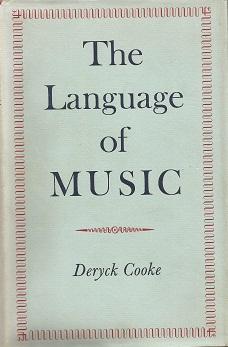
The Language of Music is a 1959 book about music by the critic and musician Deryck Cooke.

On the Content and Object of Presentations is an 1894 book by the Polish philosopher Kazimierz Twardowski, a student of the philosopher Franz Brentano.

Frege: Philosophy of Language is a book about the philosopher Gottlob Frege by the British philosopher Michael Dummett.

The Theory of Good and Evil is a 1907 book about ethics by the English philosopher Hastings Rashdall. The book, which has been compared to the philosopher G. E. Moore's Principia Ethica (1903), is Rashdall's best known work, and is considered his most important philosophical work. Some commentators have suggested that, compared to Principia Ethica, it has been unfairly neglected.
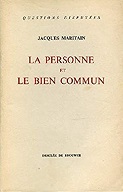
The Person and the Common Good is a 1947 book about social philosophy by the French philosopher Jacques Maritain.

An Introduction to the Philosophy of Religion is an 1880 book by the theologian John Caird.
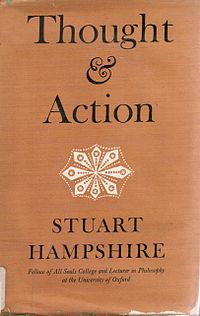
Thought and Action is a 1959 book about action theory by the philosopher Stuart Hampshire. The book has received praise from commentators, and is considered Hampshire's major work.














